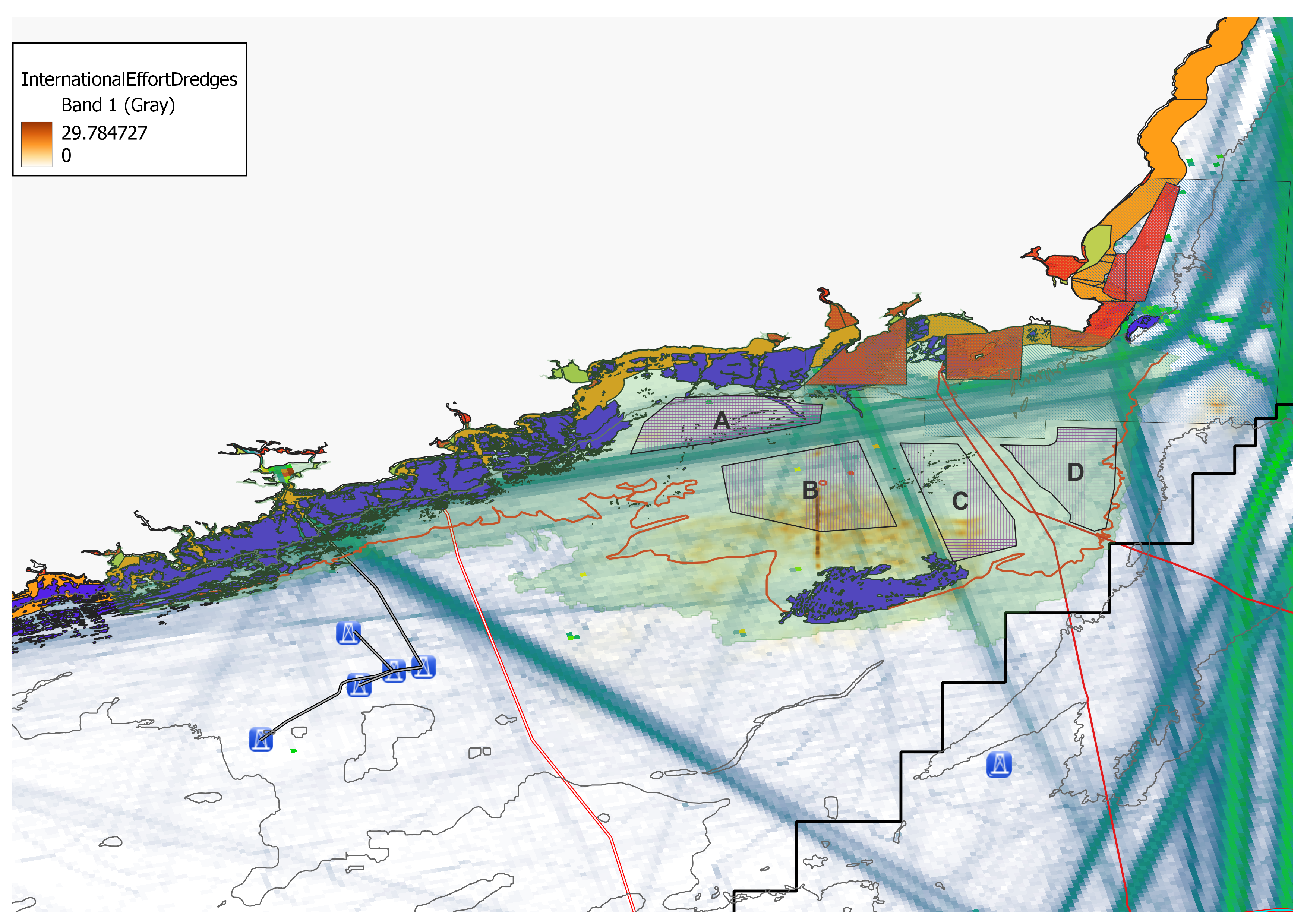Responding to the recent consultation on the draft South Coast Designated Maritime Area Plan for Offshore Renewable Energy (SC-DMAP) issued by the Department of the Environment, Climate and Communications, the Seafood Industry Representatives’ Forum (SIRF) has submitted a response to the consultation (link), expressing disappointment at the draft plan.
The Seafood Industry Representatives Forum (SIRF) is a collective of eight Irish Seafood, fishing, processing and aquaculture industry representative organisations, formed to jointly address the issues and challenges associated with Marine Spatial Planning (MSP), in particular Offshore Renewable Energy (ORE) development, and the potential impacts on the seafood sector.
The SIRF has concerns over the four proposed areas contained in the draft plan and the impact they will have on commercial fisheries. The analyses undertaken in this process openly applied subjective criteria to aid in the selection of areas. The areas selected were deemed technically and economically attractive for ORE development despite likely significant impacts on fishing activity and marine species. Commercial fisheries were only considered in the specific context of co-existence and co-location. A key concern for the sector is the failure to demonstrate and consider how avoidance of significant adverse impacts on commercial fisheries and essential fish habitats is applied as the preferred option as required under the policies set out in the National Maine Planning Framework (NMPF).
Having examined the draft plan, the SIRF cannot agree with the four maritime areas identified for future offshore wind development in the draft SC-DMAP. Nor, in its present format, will the approach taken support and guide sustainable and coherent implementation and take account of the legitimate activities of other marine users.
Mr John Lynch, Chairman of the Group, stressed that “the seafood industry acknowledges the importance of ORE and is committed to actively participating in the identification of appropriate sites for future ORE development. However, the scale and location of the proposed sites in the plan is at a level where there is a huge risk fishing will be seriously impacted. The vast majority of the overall geographical area within the selected areas overlap important fishing grounds for scallop, cod, haddock, prawns, trawl and static gear fisheries. There has been no adequate assessment of the impact of ORE development on these fisheries”.
He went on to say that “the SC-DMAP appears to be primarily and merely a prioritisation exercise for selecting technically and economically attractive sites for ORE developers without balanced consideration for existing maritime activities, particularly fishing”.
Based on a document provided to SIRF, it was recommended that an up-to-date detailed assessment of essential fish habitats is carried out coupled with a risk assessment of ORE developments in this DMAP area. This highlights fundamental issues in the analyses used to support the development of the plan and identification of the development areas. This process is flawed and effectively disregards essential fish habitats.
SIRF contends that there is an urgent need to recognise that fishing grounds and aquaculture sites are key food production areas that cannot be simply relocated or coexist at viable levels. Seafood is a low carbon, healthy and sustainable part of our food supply, which can and should be part of the targeted solution to contributing to decarbonisation targets and addressing climate change. It should not be sacrificed for ORE development on the grounds of flawed analyses.


